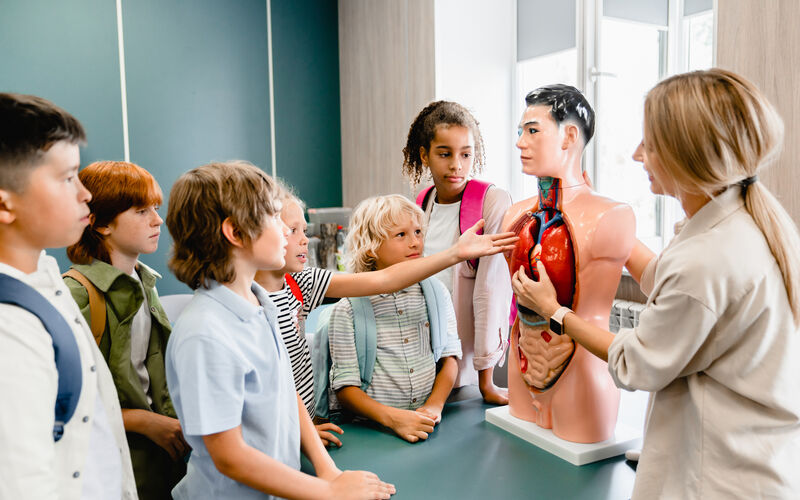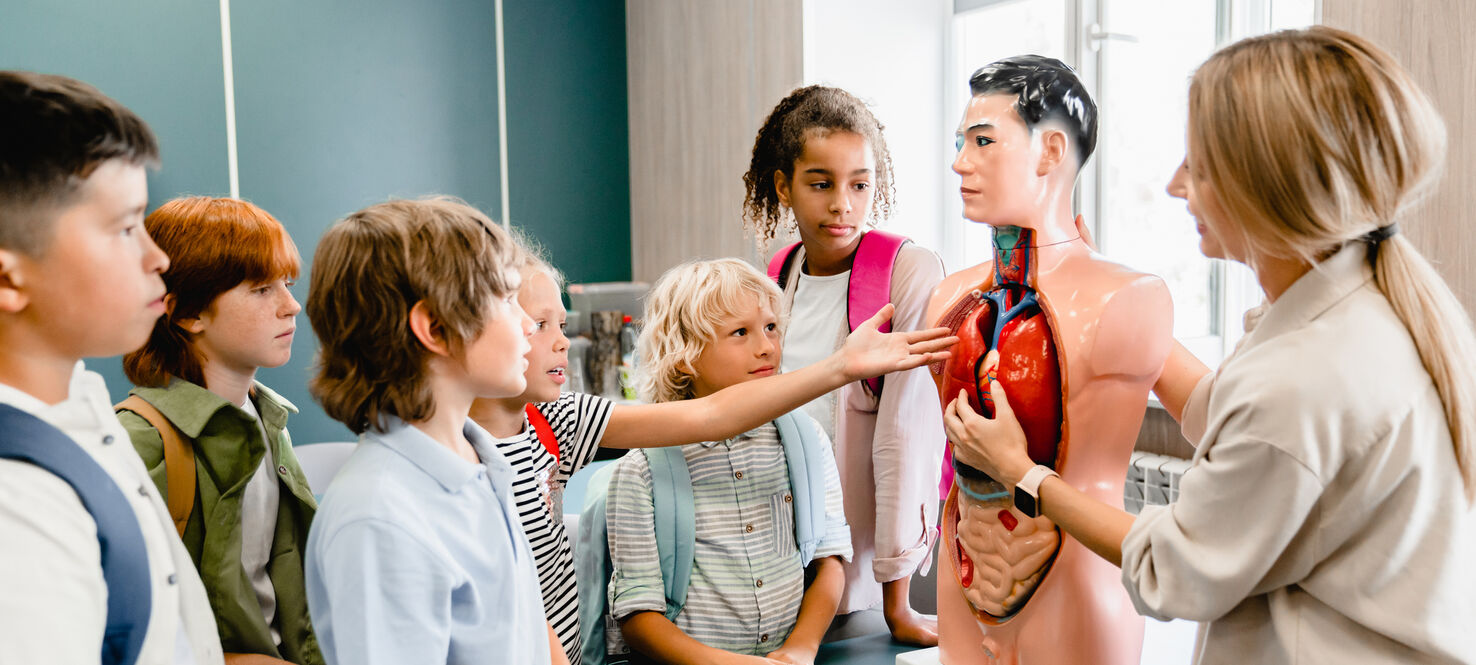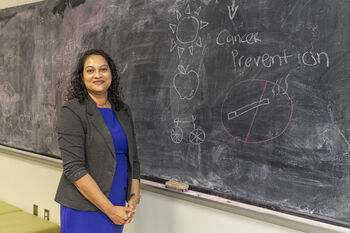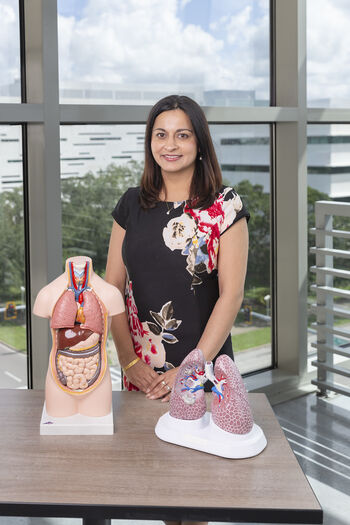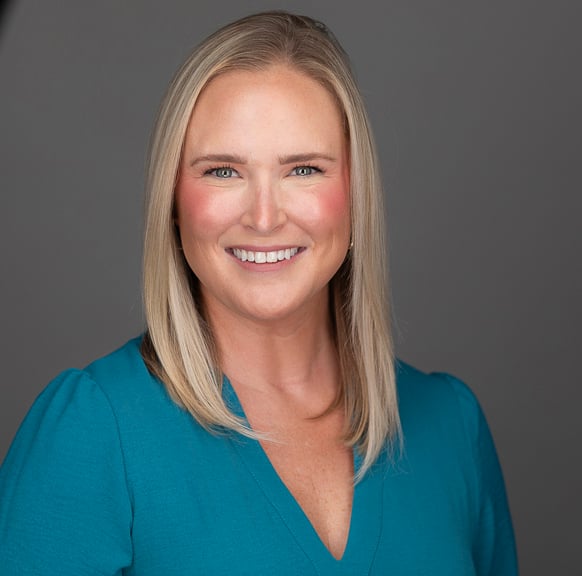From Summer Camps to Mentorships: Guiding the Future of STEM
Women faculty at Moffitt Cancer Center come from different backgrounds around the globe. Their areas of research and clinical care span the entire cancer continuum, including clinical science and trials, basic science, epidemiology, health outcomes, medical physics and more. Community involvement and mentorship among faculty are foundational, and we celebrate the essential roles women play in making a difference at the cancer center and in society.
In an era where technology drives nearly every aspect of our lives, the demand for skilled professionals in science, technology, engineering and mathematics (STEM) continues to grow. Engaging young minds in STEM from an early age can ignite curiosity and equip young people with the skills to navigate a constantly changing world.
Women faculty members at Moffitt Cancer Center are tackling this challenge head-on by introducing middle and high school students to STEM careers through summer programs and mentorship. They are inspiring the next generation to pursue careers in the health care field, ensuring futures filled with opportunity and innovation.
Early Exposure Sparking STEM Success
Susan Vadaparampil, PhD, associate center director for Community Outreach and Engagement (COE), is fortunate to have had mentors throughout her career. But she credits her parents with filling the role first.
Susan Vadaparampil, PhD
Born in India to a nurse and a schoolteacher, Vadaparampil watched her parents uproot their family for a new chapter in a foreign place, the United States. She admires how they built relationships and community without a support group. They instilled in her the value of compassion and the need for education, which now drives her work at Moffitt.
“I have always been attracted to teaching as a profession, but I always thought it had to be in a classroom. With the help of mentors, I saw there are so many ways you can be that teacher in many different contexts,” Vadaparampil said.
Reflecting on her 20 years at Moffitt, Vadaparampil understands the value of early exposure to STEM careers for young people, recognizing how it can ignite passion and shape future success.
“A scientist looks like a lot of different people. It’s not necessarily just a man or woman in a lab coat,” Vadaparampil said. “I always think about early exposure not only to the content but also to the range of possible careers. A career in STEM is not a closed club, it’s an open club. We want as many members as possible.”
In a new push toward targeting youth, three Moffitt offices including COE, Research Education and Training, and the Center of Research Career Development partnered with the Museum of Science and Industry (MOSI) last year for a summer camp that allowed middle and high school students to learn about the different roles involved in treating and curing cancer. Professionals from departments across Moffitt as well as several of Moffitt’s postdoctoral fellows collaborated to educate students with presentations and hands-on demonstrations.
Doctors guided campers through what a day in the life of an oncologist looks like. Students learned to use an ultrasound machine and clear a patient’s airway. A faculty member from Moffitt’s Anesthesiology Department even demonstrated how to put someone to sleep before a medical procedure.
“One of the middle school students wrote in their evaluation, ‘I really liked learning how to put someone under anesthesia and now I know how to do it by myself,’” Vadaparampil laughed. “So, we went from zero to 60. Now, maybe they’re not ready, but it was so rewarding that the kids could see themselves in those roles through this hands-on demonstration of what is done in medicine every day.”
In hopes of combating a rising trend, one of Moffitt’s postdoctoral trainees presented the dangers of vaping and nicotine. It was an eye-opening presentation for campers as they learned the negative health implications and how companies advertise and entice young people to vape using colors and flavors.
“I always go back to our mission, which is the prevention and cure of cancer. To be successful in our mission, we must have the healthiest communities possible, and that starts with our kids,” Vadaparampil said.
COE’s focus on the next generation stems directly from the community’s needs. Vani Simmons, PhD, assistant center director of the COE and senior member in the Department of Health Outcomes and Behavior, works closely with Vadaparampil. Both women view providing health education to the youth as a top priority and see the partnership with MOSI continuing for many summers.
Vani Simmons, PhD
“Cancer is not always at the top of mind for younger kids, but we think we need to start early in terms of giving them this information,” Simmons said. “The idea is they go home and share with their family and friends about the cool research happening at Moffitt and start thinking about a career in STEM for themselves.”
The MOSI camp partnership is one of several youth initiatives COE is tackling. Moffitt is also part of the Tampa Bay Community Cancer Network, a group of academic and community-based organizations funded by the National Cancer Institute’s Center to Reduce Cancer Health Disparities.
The network developed the Youth Ambassadors Reach Out program to educate middle school students about healthy lifestyles and cancer prevention through peer-to-peer education. The program also aims to increase awareness of STEM careers.
For the first time, the Youth Ambassadors Reach Out program partnered with the YMCA and its Teen Achievers program last fall to target underserved teens and expose them to health care careers. Simmons helped to create the curriculum for this initiative, which includes insight into the pathways for jobs in health care.
“We want to make sure that, in terms of the exposure to health careers, they are really thinking about the continuum of training that may be needed,” Simmons said. “From what we’ve heard from our colleagues, this may be the first time that students are exposed to learning about the different levels of education and the range of potential health careers you could have at a place like Moffitt.”
COE leaders are also working to ensure the long-term impact of these programs is felt. They know creating a sustainable connection between the organization and the communities they serve is essential.
“We want to make sure it’s not just a one-time effort, but that we’re developing lasting relationships in the community over the shared interests of impacting youth, and that we create some programs where we continue to come back and train their staff to be able to deliver and share some of this information as well,” Simmons said.
Teen Tackle Oncology With Math
The thought of diving into cancer research, especially with intricate math equations, may seem daunting to most teenagers, but not those applying for a spot in Moffitt’s High School Student Internship Program in Integrated Mathematical Oncology (HIP IMO). The eight-week summer mentorship training program is designed for aspiring scientists, fondly referred to as hipsters, to help them prepare for careers in cancer research.
Renee Brady-Nicholls, PhD
“It’s an opportunity for students to come in and do real cancer research in a math department,” explained Renee Brady-Nicholls, PhD, an assistant member in the Integrated Mathematical Oncology Department and HIP IMO program director. “We are not having them come in to enter data or push paper. We outline research projects and work on real questions we’re actually interested in.”
HIP IMO started in 2015 and has grown steadily each year, attracting more students from Florida and nationally. Last summer, the department received 147 applications for 15 seats.
Working closely with an assigned mentor in the Integrated Mathematical Oncology Department, the students are involved in projects designed to develop lifelong research skills. They participate in lab meetings, document findings, write scientific reports and even gain public speaking skills by delivering a 15-minute presentation during HIP IMO research day.
“We are allowing them to see what they are capable of,” Brady-Nicholls said. “My goal is to get [students] outside of their comfort zone, push them beyond their own limits and see what’s possible.”
Mentor-mentee relationships last beyond the two-month camp. Several students make it a priority to continue working on research and meeting with their Moffitt mentor throughout the school year.
Brady-Nicholls praises her colleagues for dedicating time to this program each summer, as most take on more than one mentee on top of their day-to-day responsibilities at Moffitt. She encourages postdocs and graduate students to get involved, as she’s found being a mentor rewarding, personally and professionally.
“These kids are fantastic, and it is a really rewarding experience,” she said. “I think it’s tiring at times, but at the end of the summer, when you realize how much of an impact you’ve made on the student’s life, it makes it all worth it.”
A Lasting Impact Through Mentorship
Moffitt’s mentorship programs continue to spark curiosity and ambition in the next generation of scientists and health care professionals. Whether through hands-on experiences in summer camps, exposure to groundbreaking research or one-on-one guidance, young people are gaining confidence to explore careers in STEM.
With each student they mentor, Moffitt faculty are helping to build a pipeline of the next generation of leaders who will drive future progress, discovery and patient care.
“The culture of mentorship at Moffitt is one of the things that keeps me here,” Vadaparampil said. “It is really embedded in the way we approach things.”


